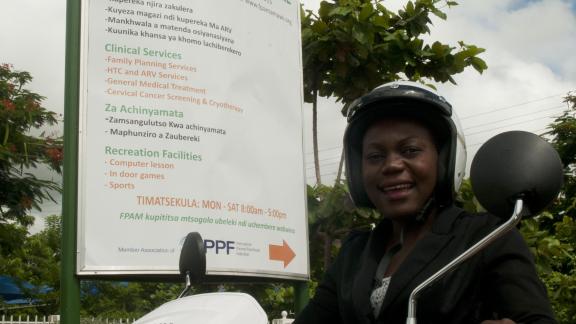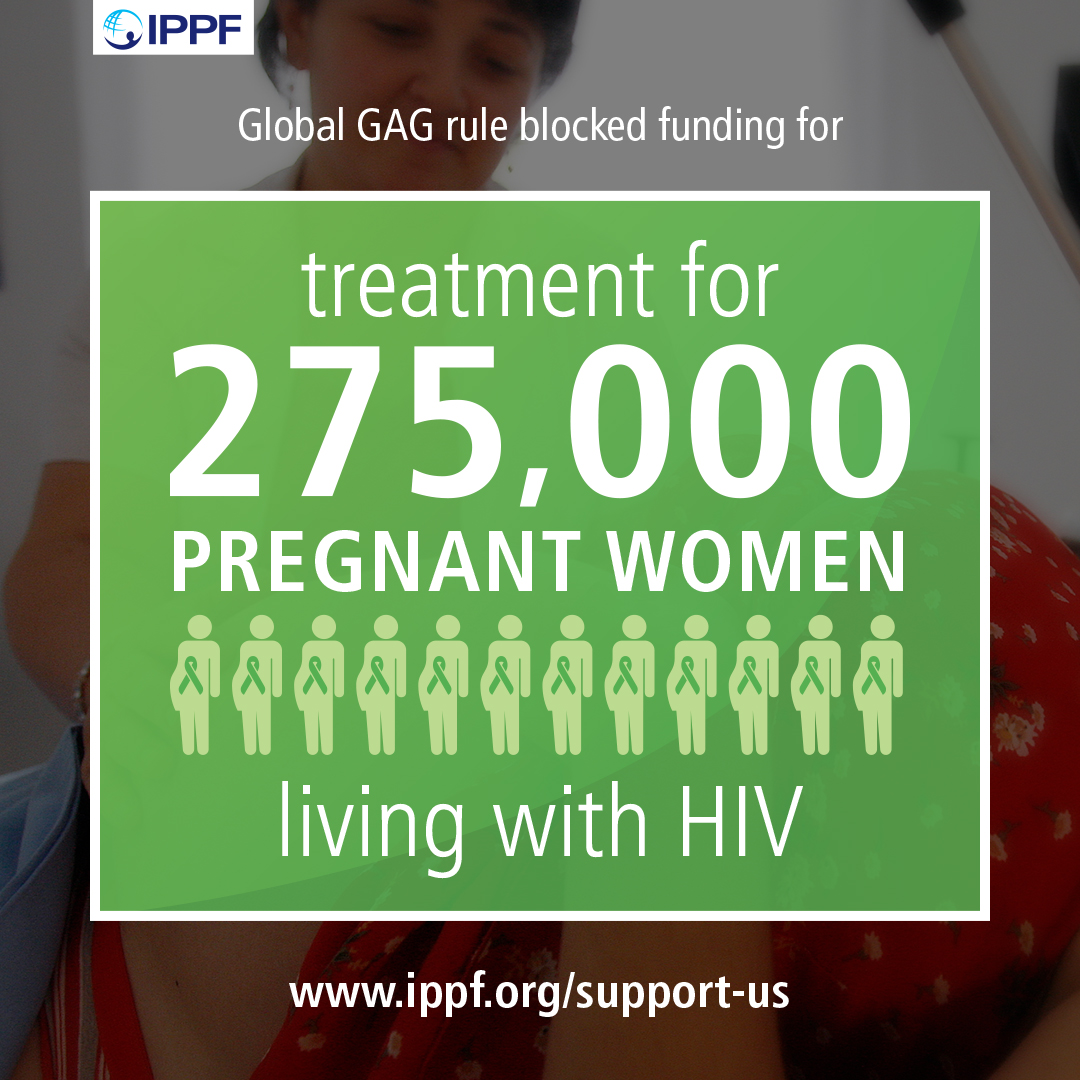It used to take Matilda Meke-Banda six hours on her motorbike along dirt roads to reach two remote districts and deliver sexual and reproductive health (SRH) services.
In this part of southern Malawi, Machinga, family planning uptake is low, and the fertility rate, at 6.6, is the highest in the country.
The Family Planning Association of Malawi, known as FPAM, runs a clinic in the town of Liwonde and it’s from here that Matilda travelled out six times a month.
“We have established six watch groups, they are trained to address SRH issues in the community,” she explains.
Luc Simon is the chair of one of those groups. “We teach about Family Planning,” he says. “We encourage parents and young people to go for HIV testing. We address forced early marriages, talk to parents and children to save a lot of young people.”
And there are a lot of myths to dispel about family planning. Elizabeth Katunga is head of family planning in the district hospital in Machinga:
“Family Planning is not very much accepted by the communities. Many women hide the use of contraceptives,” she says.
“Injectables are most popular, easy to hide. We have cases here where husbands upon discovery of an implant take a knife and cut it out. It is not that people want big families per se but it is the misconceptions about contraceptives.”
FPAM’s projects are based at the Youth Life clinic in Liwonde. The clinic offers integrated services: Family planning, HIV services, STI screening, cervical cancer screening and general healthcare (such as malaria).
This joined-up approach has been effective says FPAM’s executive director Thoko Mbendera: “In government health facilities, you have different days, and long queues always, for family planning, for HIV, for general health, which is a challenge if the clinic is a 20 km walk away.There are privacy issues.”
But now, FPAM’s services are being cut because of the Global Gag Rule (GGR), mobile clinics are grounded, and there are fears that much progress will be undone.
Some of FPAM’s rural clients explain how the Watch Groups work in their community.
“It starts with me as a man,” says group member George Mpemba. “We are examples on how to live with our wives. We are non-judgemental; we embark on a mutual learning process. Our meetings are not hearings, but a normal chat, there is laughing and talking. After the discussion we evaluate together and make an action plan.”
Katherine, went to the group for help: “There was violence in my marriage; my husband forced himself on me even if I was tired from working in the field. When I complained there was trouble. He did not provide even the bedding.
“He is a fisherman and he makes a lot of cash which he used to buy beer but nothing for us.I overheard a watch group meeting once and I realised there was a solution. They talked to him and made him realise that what he was doing was violence and against the law. It was ignorance.Things are better now, he brings money home, sex is consensual and sometimes he helps with household chores.”
when
country
Malawi
Subject
Comprehensive Sex Education
Related Member Association
Family Planning Association of Malawi











